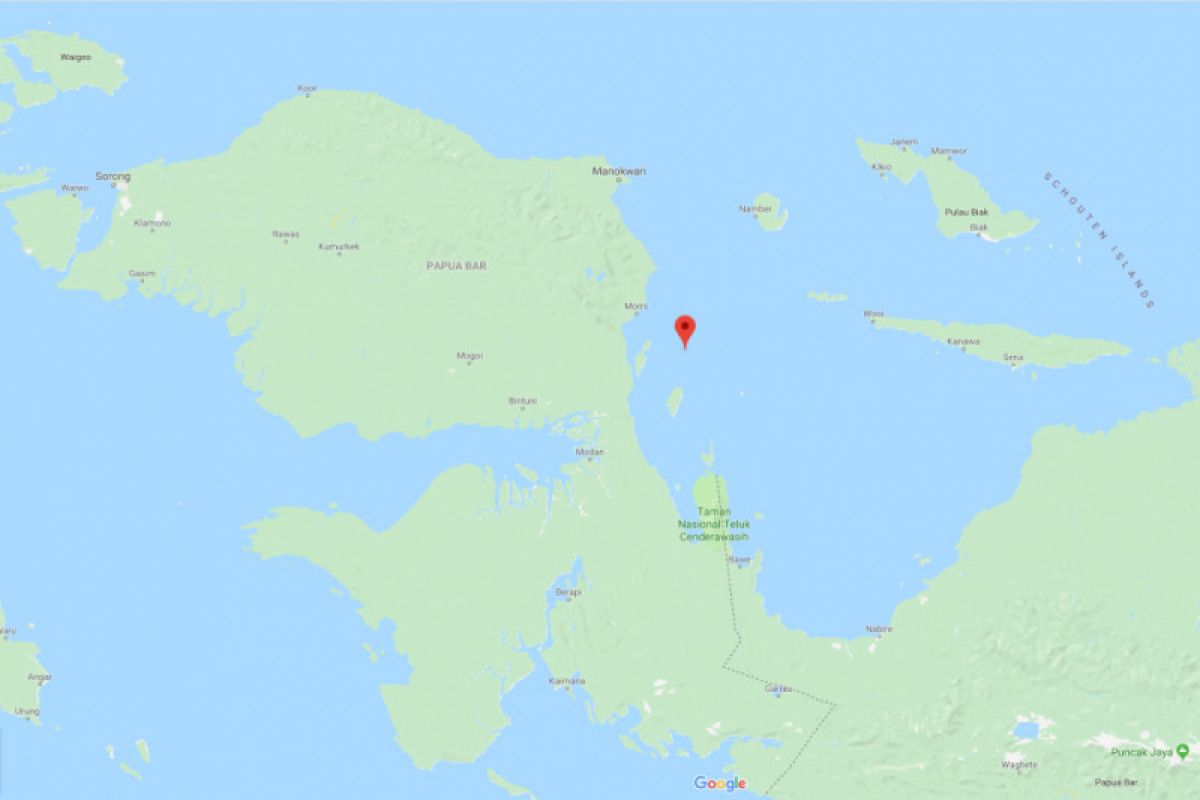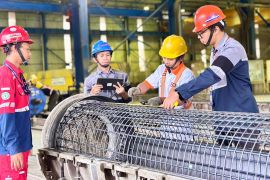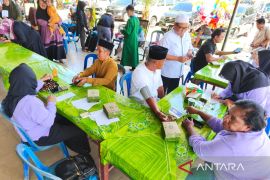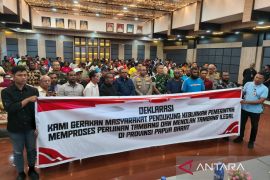The commencement of railway projects in West Papua in 2019 will increase the length of the railway line and will be a new era in railway transportation history since the first railway lines in Indonesia were constructed during the Dutch colonial rule.
History recorded that on June 7, 1864, governor general Baron Sloet van den Beele initiated the first railway line in Indonesia on Kemijen village in Semarang, Central Java.
It began operations on Aug 10, 1867, in Central Java, connecting the first built Semarang station to Tanggung for 25 kilometers.
By May 21, 1873, the line was connected to Solo, in Central Java, and was later extended to Yogyakarta.
By the 1920s, the system in Java had reached its greatest extent, with most towns and cities connected by rail, with branches and tramways connecting sugar plantations to factories.
And now the railway project will be expanded to areas outside Java and reach remote areas in West Papua Province.
The Central government has asked the regional administration of West Papua to accelerate preparation for the project to build railway track in the province.
The instruction from Jakarta will be on land clearing where the main tracks would be built and would pass through the city of Sorong, Sorong District, South Sorong, Maybrat, Teluk Bintuni, South Manokwari, and Manokwari.
The main track would extend between the city of Sorong and the city of Manokwari.
West Papua Transportation Office Chief Agustinus Kadakolo remarked in Manokwari on Monday that the groundbreaking of the railway project in the province will be carried out in 2019.
According to Kadakolo, the first phase of the construction of the railway line will be carried out around 100 kilometers from Sorong City.
The study on the Analysis of Environmental Impacts (Amdal) already exists, and now the West Papua Transportation Office is just waiting for recommendations from two districts, namely Bintuni Bay and Maybrat.
In the future, the railway line in West Papua will connect all regions in the province, except Raja Ampat Islands District.
Recommendation from the district and city governments in West Papua will become one of the conditions for the development of railway project.
The recommendation generally contains the support of the district and city governments for the implementation of this project, as well the readiness to participate in implementing their respective authority.
"We are waiting for the recommendation. If we receive it, we will immediately convey it to the governor of West Papua, who will submit it to the Ministry of Transportation. If in 2018 all regions submit the recommendations, we will carry out the groundbreaking in 2019," Kadakolo noted.
According to him, the initial construction of the railway project will be carried out through the provincial government budget. Furthermore, the project will be continued by the Ministry of Transportation through the Directorate General of Railways.
It is expected that this program can run smoothly, so that the West Papua Province can have new modes of transportation to accelerate development.
Like the railway program in Sulawesi region that had been started since 2017, the similar project in West Papua will connect strategic places in the province.
The railway lines in West Papua will be integrated with the port, so that it can facilitate the flow of goods distribution and passenger mobility.
In the Sorong region, the railway program will be implemented to support the Special Economic Zone (SEZ) which President Joko Widodo (Jokowi) will inaugurate later in 2019.
Originally, the president hoped to break the ground to mark the start of work to build the railway in July 2016 in Sorong, but it was delayed due to problems in land clearing.
Land was available and the Sorong city administration had approved it, but protracted bickering in land price delayed the decision.
While waiting for the agreement in land price negotiations between the city administration and the land owners, the railway directorate general and consultants were working on the details of engineering design (DED) of the whole tracks.
The details of engineering design on the main track were in final phase. The regional administrations, especially the Sorong city, Sorong District, South Sorong, Maybrat, Teluk Bintuni, South Manokwari, and Manokwari city administrations, were asked to prepare land and deal with land clearing.
The Central Government in Jakarta was waiting for report from the Sorong city administration on the progress made in land clearing and groundbreaking plan.
According to data from the Directorate General of Railways of the Ministry of Transportation, the Trans-Papua railway plan consists of Sorong-Manokwari (390 kilometers), Manokwari-Nabire (308 kilometers), Nabire-Timika (272 kilometers), Nabire-Sarmi (375 kilometers), and Sarmi-Jayapura (205 kilometers), which covers a total length of 1,550 kilometers.
The Trans-Papua railway development program includes the development of a new railway network in Papua and West Papua.
The financing details of these railways include Sorong-Manokwari, valued at Rp26,70 trillion; Sarmi-Jayapura, at Rp14,42 trillion; Manokwari-Nabire, valued at Rp23,67 trillion; Nabire-Sarmi, at Rp26,35 trillion; the Nabire-Timika portion, valued at Rp19,83 trillion, with the total pegged at Rp108,3 trillion.
Meanwhile, the first railway priority to build the Sorong-Manokwari track began in late 2017, and it will be completed in 2024; followed by Sarmi-Jayapura, which started in early 2018; Manokwari-Nabire, which will start as early as 2020; the Nabire-Sarmi stretch, which will be completed by the end of 2020; and Nabire-Timika, which will be completed by the end 2020.(*)
Editing by Yoseph Hariyadi
Reporter: Otniel Tamindael
Editor: Fardah Assegaf
Copyright © ANTARA 2018












